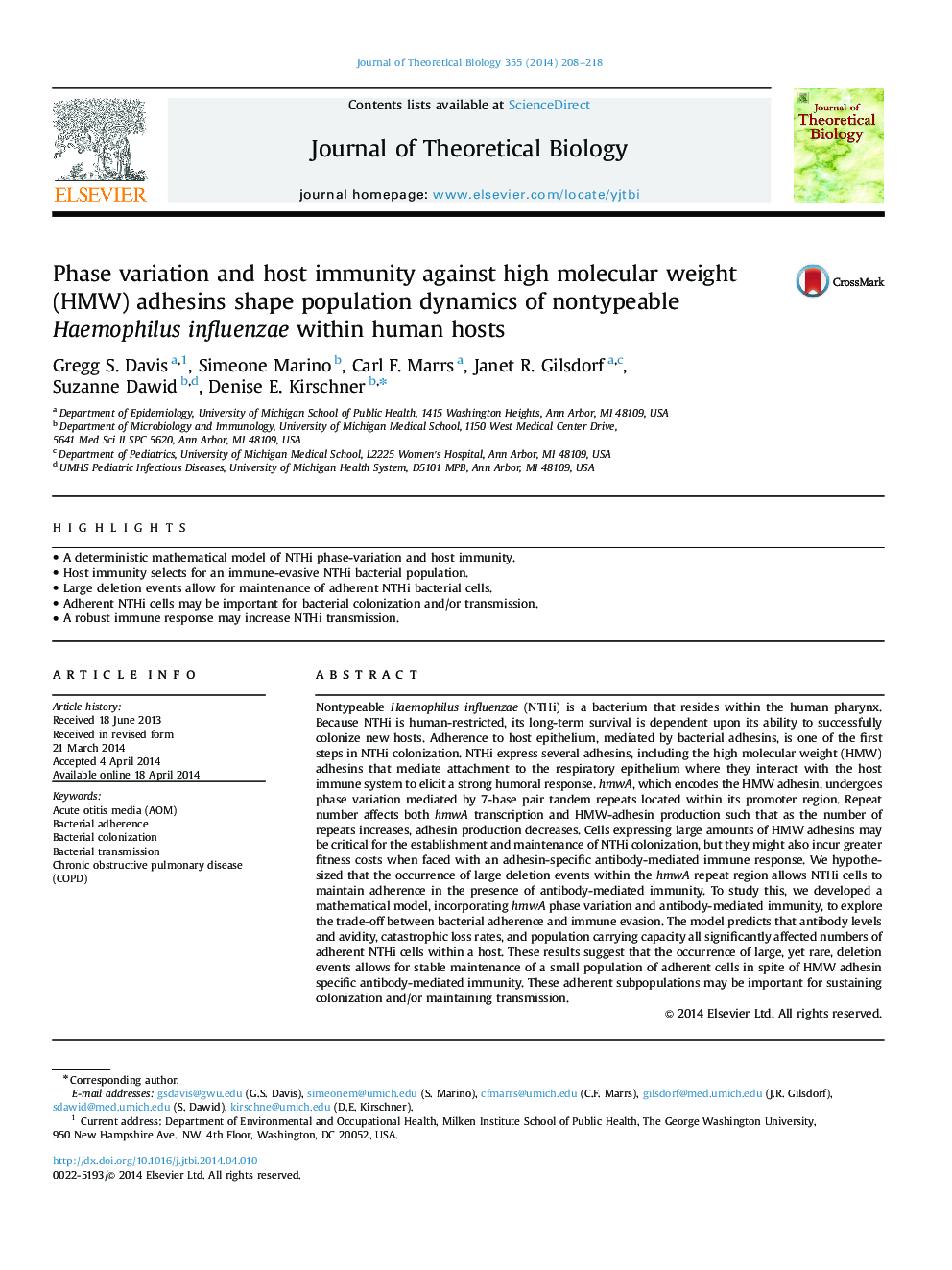| کد مقاله | کد نشریه | سال انتشار | مقاله انگلیسی | نسخه تمام متن |
|---|---|---|---|---|
| 6370513 | 1623855 | 2014 | 11 صفحه PDF | دانلود رایگان |

- A deterministic mathematical model of NTHi phase-variation and host immunity.
- Host immunity selects for an immune-evasive NTHi bacterial population.
- Large deletion events allow for maintenance of adherent NTHi bacterial cells.
- Adherent NTHi cells may be important for bacterial colonization and/or transmission.
- A robust immune response may increase NTHi transmission.
Nontypeable Haemophilus influenzae (NTHi) is a bacterium that resides within the human pharynx. Because NTHi is human-restricted, its long-term survival is dependent upon its ability to successfully colonize new hosts. Adherence to host epithelium, mediated by bacterial adhesins, is one of the first steps in NTHi colonization. NTHi express several adhesins, including the high molecular weight (HMW) adhesins that mediate attachment to the respiratory epithelium where they interact with the host immune system to elicit a strong humoral response. hmwA, which encodes the HMW adhesin, undergoes phase variation mediated by 7-base pair tandem repeats located within its promoter region. Repeat number affects both hmwA transcription and HMW-adhesin production such that as the number of repeats increases, adhesin production decreases. Cells expressing large amounts of HMW adhesins may be critical for the establishment and maintenance of NTHi colonization, but they might also incur greater fitness costs when faced with an adhesin-specific antibody-mediated immune response. We hypothesized that the occurrence of large deletion events within the hmwA repeat region allows NTHi cells to maintain adherence in the presence of antibody-mediated immunity. To study this, we developed a mathematical model, incorporating hmwA phase variation and antibody-mediated immunity, to explore the trade-off between bacterial adherence and immune evasion. The model predicts that antibody levels and avidity, catastrophic loss rates, and population carrying capacity all significantly affected numbers of adherent NTHi cells within a host. These results suggest that the occurrence of large, yet rare, deletion events allows for stable maintenance of a small population of adherent cells in spite of HMW adhesin specific antibody-mediated immunity. These adherent subpopulations may be important for sustaining colonization and/or maintaining transmission.
Journal: Journal of Theoretical Biology - Volume 355, 21 August 2014, Pages 208-218